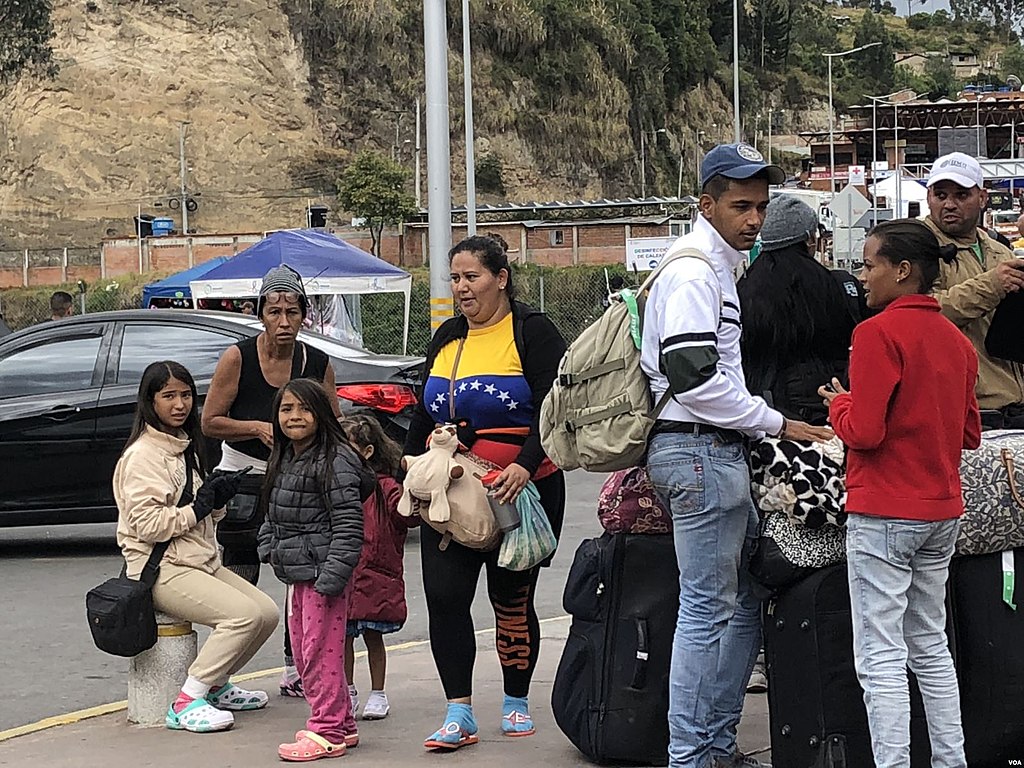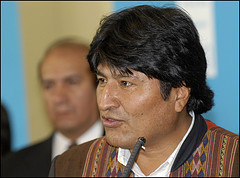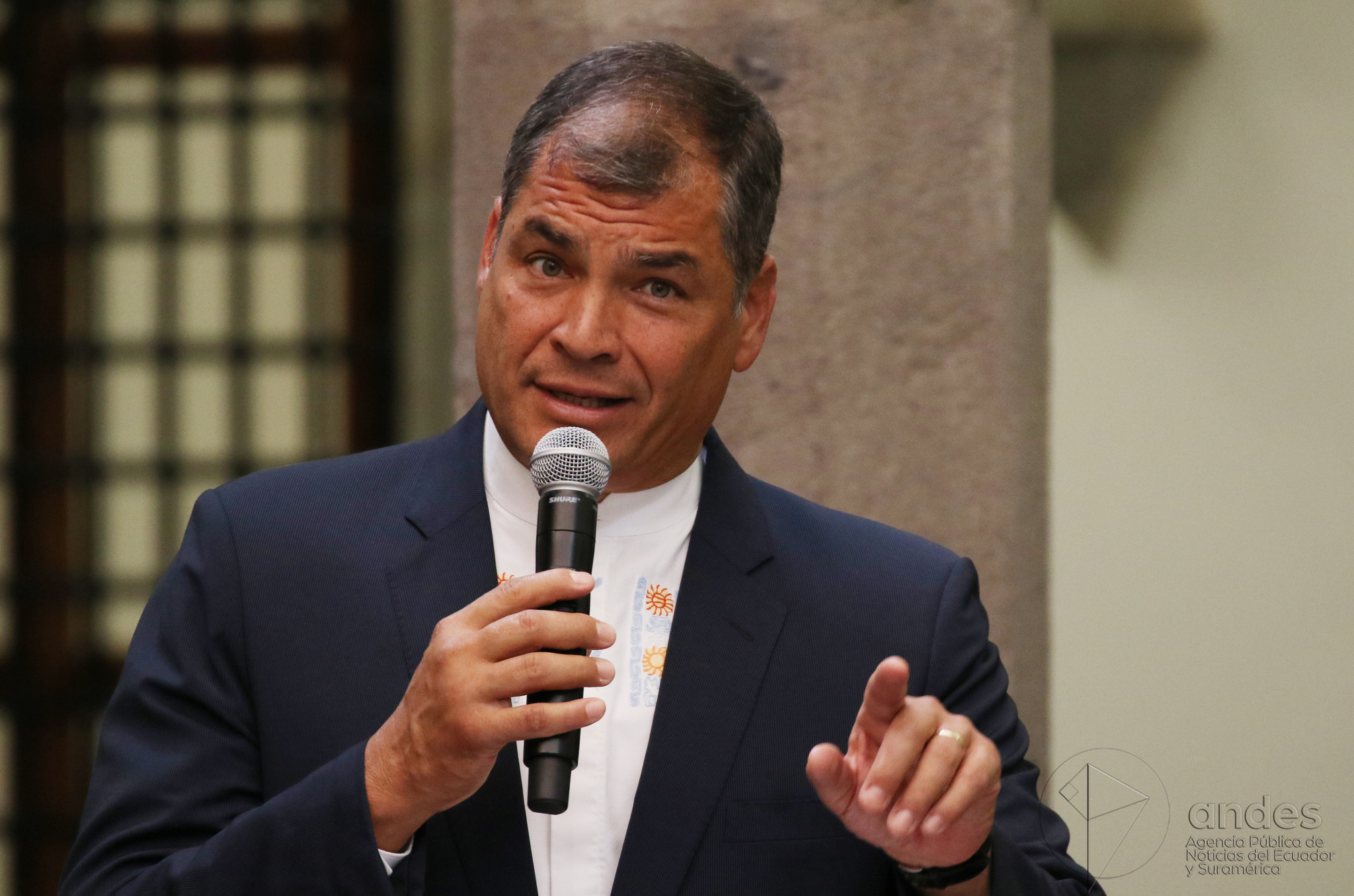
Andes, Latin America: Week in Review, Venezuela
Jailed Venezuelan lawmaker still hasn’t had contact with lawyers but appears in “confession” video
August 13, 2018 By Staff
TODAY IN LATIN AMERICA
VENEZUELA: Arrested lawmaker Juan Requesens has still not be allowed to talk to a lawyer or see his family since he was taken into custody without an arrest warrant on Tuesday evening on accusations of being involved in a drone attack against president Nicolás Maduro, his family says he is “disappeared.” On Friday, 29-year-old Requesens was supposed to appear before a judge but the hearing was postponed for today and Venezuelan officials released a videotaped statement that shows him saying he helped exiled lawmaker Julio Borges bring a man from Colombia into Venezuela. Communications Minister Jorge Rodríguez said the tape shows an admission of guilt for the attack but Requesens does not mention it and says he never even met the man, whose name is Juan Monasterio Vanegas and is one of the six people accused of the explosive attack. Hours later, a second video leaked into social media showing Reqesens in a bad state, shirtless and wearing soiled underwear. The lawmaker’s sister, student-leader Rafaela Requesens, said Maduro’s government is trying to humiliate her brother and explained that because of a gastric bypass surgery he needs to eat food and use the bathroom regularly, she also dismissed the “confession” video saying her brother does not sound like himself.
HEADLINES FROM THE WESTERN HEMISPHERE
NORTH AMERICA
MEXICO: Prosecutors opened a new investigation into alleged corruption by the former governor of the state of Chihuahua César Duarte and dozens of officials who worked for his administration for allegedly embezzling $320 million in government funds in 2016. There are already a number of warrants for Duarte’s arrest on other corruption charges and he is on the run and believed to be in the United States.
CARIBBEAN
TRINIDAD AND TOBAGO: The Nobel laureate V.S. Naipaul died Saturday at his London home at 85 years old. The novelist was born in Trinidad in 1932 to a Hindu family descended from Indians shipped to the West Indies as bonded laborers.
DOMINICAN REPUBLIC: Thousands marched through the streets of Santo Domingo yesterday demanding justice in the local iteration of the continent-wide Odebrecht scandal. The executives of the Brazilian construction firm confessed to having paid $92 million in bribes between 2001 and 2014 to as many as 14 people in the Dominican Republic, but only seven are still facing accusations.
CENTRAL AMERICA
GUATEMALA: Chief prosecutor Maria Consuelo Porras and the United Nations-backed anti-corruption commission made on Friday a third attempt to have President Jimmy Morales’ immunity lifted so he can be investigated for alleged illicit electoral financing. The request has to pass through the Supreme Court and Congress to be successful, the two prior attempts, which were promoted by Porras’ predecessor Thelma Aldana, failed one at each stage. Porras was chosen by Morales to replace Aldana, who was internationally recognized for her aggressive anti-corruption investigations, and many feared she would not pursue corruption as vehemently.
ANDES
COLOMBIA: Foreign Minister Carlos Holmes Trujillo announced on Friday Colombia is leaving the Union of South American Nations because it has become “an accomplice of the Venezuelan dictatorship.” The organization, known usually as Unasur and created by the late Venezuelan president Hugo Chávez in 2007, is made up of 12 South American countries and was debilitated in January when Colombia, Argentina, Brazil, Chile, Paraguay and Peru suspended their membership. Trujillo said Colombia is discussing the possibility of leaving Unasur en masse with Argentina, Chile and Peru.
COLOMBIA: President Iván Duque threatened on Friday to pull the government out of peace negotiations with the ELN rebels if they don’t release nine hostages, including three police officers and four soldiers. The day before, three soldiers on leave who were unarmed, wearing civilian clothes and traveling in a public transport vehicle were held hostage by the ELN in the central eastern province of Arauca, close to the border with Venezuela.
SOUTHERN CONE
BRAZIL: The eight registered presidential candidates held their first televised debate last Thursday, but jailed former President Luiz Inácio Lula da Silva was barred by a judge from participating despite leading in the polls. Lula has until Wednesday to register his candidacy and only then electoral authorities will have to decide on whether he’s allowed to run following a corruption conviction. Far-right candidate Jair Bolsonaro, who is second in the pre-election polls with 15 percentage points that only halve Lula’s support, was the main target of debaters during the encounter.
CHILE: Former president Michelle Bachelet was approved unanimously by the United Nations General assembly as the next U.N. human rights chief on Friday as expected. After her approval U.S. Minister-Counselor Stefanie Amadeo said “it is incumbent” on Bachelet to avoid the Geneva-based Human Rights Council’s “consistent failure to address extreme human rights abuses in the Western hemisphere, in Venezuela and Cuba in particular”and in Iran, North Korea and Congo. The representatives of Iran, Cuba, Venezuela then took the stage to criticize the United States for the politicization of human rights and pointed towards its own human rights failings like the separation of migrant children, police brutality against the African-American population, drone wars and the use of torture as legitimate practice. The American diplomat said the United States “notes with disappointment the incorrect misconstructions, fabrications and false criticism of the delegations of Cuba and Venezuela.”





